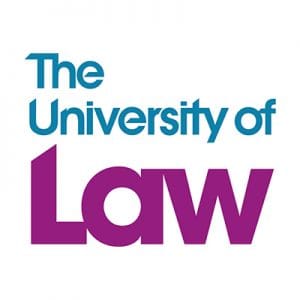The pathway to becoming a solicitor for law graduates

The Solicitors Qualifying Exam (SQE1) — law graduates
The Solicitors Qualifying Examination (SQE) is the two-part centralised route to qualifying as a solicitor for those entering the profession through the SQE pathway. This section focuses on the first part of the assessment, known as SQE1.
For graduates with a qualifying law degree who choose to qualify via the SQE route, most will take a short SQE preparation course before sitting the centralised SQE1 exam. While these courses are not compulsory, they are strongly recommended as a refresher for law graduates looking to consolidate their degree knowledge. Preparation courses also help candidates adapt to the multiple-choice exam format used in SQE1, which differs significantly from the essay-based and problem-style assessments typically used in undergraduate law degrees.
What am I examined on?
The two Function Legal Knowledge (FLK) assessments cover the following subject areas:
1) Business law and practice; dispute resolution; contract; tort; legal system of England and Wales; constitutional and administrative law and EU law and legal services.
2) Property practice; wills and the administration of estates; solicitors accounts; land law; trusts; criminal law and practice.
Ethics and professional conduct are assessed pervasively across both SQE1 and SQE2. Find out more about the SQE1 assessment specification.
How much does SQE1 cost? (Correct from September 2025)
The SQE1 exam is £1,934 (£967 for FLK1 and £967 for FLK2), although it’s worth noting that this does not include fees for the SQE2 assessment (£2,974) and any prep course you may wish to undertake. This exam fee is paid directly to the Solicitors Regulation Authority.
While it is not compulsory to undertake a prep course prior to sitting the SQE, given the format of the SQE and the different style of assessment, most students will find it beneficial to take a prep course. SQE1 prep course fees can vary substantially across providers, with basic online packages starting from around £1,500, and any SQE2 prep course support would be undertaken at additional cost.
Where can I take the SQE1?
If you have already gained a training contract, then it is likely that your firm will specify the SQE provider and location. However, if you have not yet secured a training contract, there are a range of law school and institutions across the UK which offer various levels of SQE prep. You can find a list of SQE providers here.
Entry requirements
Entry requirements for an SQE1 prep course can vary from provider to provider, although law schools typically advise candidates to complete a law degree or conversion course prior to starting.
What is an LLM and can this be combined with SQE prep?
An LLM degree is a Master of Laws, which is a postgraduate qualification and typically takes one year to complete full-time or two years part-time, depending on the options offered by different universities. These degrees can either be focused on a specific area of law that is of interest to the student, or a more general qualification that allows for further study of multiple areas of law, with some law schools now running an LLM with built-in preparation for SQE1&2 exams. Studying an LLM alongside SQE preparation is another route to qualification under the new regime, and means that students could be eligible for a Postgraduate Master’s Loan. Please note that law schools will set their own entry requirements for being accepted onto these courses, so please check their websites for further details.
Funding the SQE
Many firms will pay for your SQE preparation, alongside giving you a maintenance grant. However, if your fees are not being paid by a law firm, your options for funding your SQE include:
● Self-funding through savings
● Self-funding through part-time work, alongside the part-time SQE prep
● The Law Society Diversity Access Scheme
● SQE scholarships (found on the scholarship section of SQE providers’ websites)
● Flexible law school payment structures
● A government-backed masters loan if you complete SQE prep with an integrated masters
What is the LPC?
The Legal Practice Course (LPC), also known as the Postgraduate Diploma in Legal Practice, is a vocational course taken after an undergraduate law degree or law conversion course as part of the route to qualifying as a solicitor.
How has the introduction of SQE affected it?
For those who started a law or non-law degree on or after 1 September 2021, the two-part Solicitors Qualifying Examination (SQE) is now the main centralised route to qualification in England and Wales. As part of this transition, the LPC has been gradually phased out since 2021, with a formal end date of 2032. However, most law schools have already stopped offering the LPC or are in the process of doing so.
Entry requirements
For the law schools that still offer the LPC, applicants typically need a UK degree with at least a 2:2 classification and, where applicable, successful completion of a law conversion course. The LPC remains available only to students who completed, started, accepted an offer, or paid a non-refundable deposit by 31 August 2021 for one of the following:
• a Graduate Diploma in Law (GDL) / Common Professional Examination
• an MA Law
• the LPC
• a period of recognised training (training contract)
For a qualifying law degree (QLD) or exempting law degree (ELD), the relevant cut-off date is 21 September 2021.
If you started any of the above routes before 1 September 2021, you may still qualify via the traditional pathway until 31 December 2032. That said, most law firms now expect future trainees to qualify through the SQE. Non-law graduates should see Law Conversion/SQE1.
